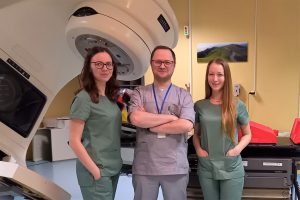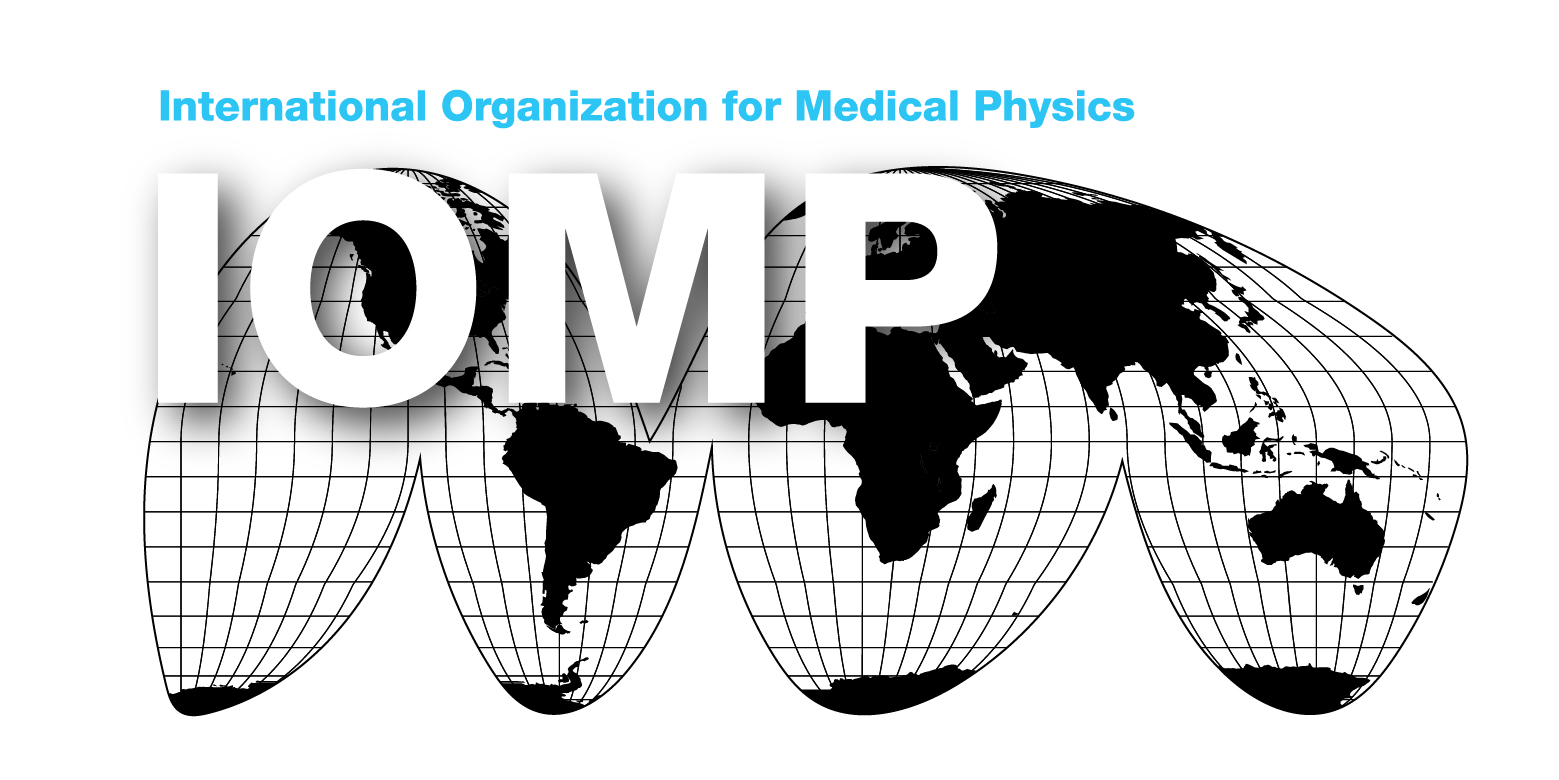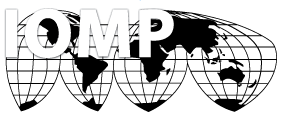Three medical physicists from Ukraine share their stories
Contributed by: Iryna Hliebova, Vitalii Mamchur, and Anastasiia Karpenko
Three medical physicists from Ukraine share their stories

We are medical physicists in the radiotherapy department in a cancer hospital in the Kyiv region. February 23 was our usual working day, and at the end of the day, we prepared everything for patients who were going to start their treatment the next morning and went home to Kyiv. But none of us came to the hospital on February 24 since it was already dangerous. Medical personnel who were on the night shift was not able to be changed and continued to stay in the hospital for 2 days more, till all our patients were transported to other hospitals in Kyiv. In accordance with our instructions, the electrician on duty carried out an emergency shutdown of the linac. All managers and doctors were helping with searching places in other hospitals for patients and discussing possible options to continue treatment or make surgical operations at a safer place. Later, when the Russian military came closer, our bunker and hospital were used by people from the nearest villages to save their lives.
Iryna Hliebova:
On 24th February, “I woke up at 5.20 a.m. because of the noise outside, in a few minutes my brother called me and told me that I should leave my home as soon as possible. Of course, I was not ready for such brutal attacks by Russia on the entire territory of Ukraine and with the involvement of Belarus, it seemed impossible and great savagery in the 21st century, in the age of information technology, when every corner of the world can be seen from satellites. Thanks to my parents, we discussed what to do and where to go in an emergency case. Also, our government gave us strong recommendations to prepare in advance “emergency bag” and shared this information daily on news and social networks. On the way to the subway, rockets and fighter jets flew over my head, I heard the explosions, and the sky turned red. The men from our family left us women in a small town in the Kyiv region and went back to Kyiv.
In a few weeks, I realised that the war would not finish soon, so I started to search for work to be able to support financially myself, my family, and my country. A few weeks later, I felt that there was no safe place in my country, my parents were giving me strong suggestions to go to the EU, so I left Ukraine in the middle of March. I am really thankful to my friend (also a medical physicist) that invited me many times to stay at her home in Latvia, helped me to find an apartment later and to all people for support on my road.
At this moment, I am in a safe place. As part time work, I give robotics classes to children, and in my free time, I help in a volunteer centre for refugees from Ukraine, waiting for all the necessary documents and hope will start to work in my profession soon. My parents, at the end of April, left their home in the south of Ukraine and went to its central part since the number of attacks was increasing in their city.”
Vitalii Mamchur:
“That week of ending February, my wife and I were quarantined at home because of Covid 19. Early in the morning of February 24, this unexpected vacation was interrupted by a call from my wife’s colleague. At that moment, I heard perhaps the worst words of my life: “The war has begun.”
We live in a residential area of Kyiv, far away from Gostomel or Bucha. Maybe that’s why we didn’t hear the explosions in the first hours of the war. But after a few hours, the sounds of war reached us.
Since my wife is a doctor, we decided not to leave Kyiv. My hospital was in a combat zone, so I was not able to go there. I joined my wife, and we went to the medical centre where she works. There I helped unload trucks with humanitarian cargo that were brought to Ukraine from around the world. I can say that I was a volunteer. The medical centre received the wounded, who were brought from the suburbs of Kyiv. We spent the next month there until Kyiv was unblocked, and I had the opportunity to go to my place of work.
On coming back in April, while running the linac, I encountered a number of problems. The machine was de-energized for a long time, and the clinic itself was without heating for several weeks. This led to a drop in the value of vacuum in the accelerator path and in the electromagnetic gun. It was not possible to start the linac. Fortunately, the design of modern accelerators includes a vacuum pump, which can return the amount of vacuum to normal over time. Together with service engineers, we solved all the problems in a short time and restored the linac.
Now, in May 2022, we have the opportunity to help people like in the good old days despite fears of war still looming over our head. An opportunity to do our favourite work…” We are treating patients in radiotherapy with reduced workload as there are sirens of war 3-4 times every day.
Anastasiia Karpenko:
“On February 24, the 05.07 a.m. call from my friend living in Kharkiv divided my life into “before” and “after.” After her words: “Kharkiv is being bombed!” my husband and I, for at least half an hour, were sitting and thinking about what to do and where to go as it seemed quiet in the area we live in Kyiv. When the muffled sounds of explosions began to be heard outside the window, we eventually decided to leave the city. Having taken our “emergency bags” and left all other stuff in the apartment we rented, we got into the car and went to my parents’ home in the Poltava region, not knowing if we would come back here again. Although not so much time had passed since the first sound of war reached Kyiv, there were insane traffic jams on all the roads of the capital as people wanted to evacuate to safer places as soon as it was possible. People were running with their bags, dozens of car accidents, and military cars heading to the city borders – that was the picture of that morning.
A couple of hours later, I realised that in the near future, I would not be able to return home or to work. In our cancer clinic in the Kyiv suburbs, everything was ready for the normal treatment day with patients scheduled, physicians ready to consult new patients, and linac ready to work, but the war made its own adjustments to our plans. At my parents’ home, I worked as a volunteer, was a blood donor as I have the rare AB negative blood type, and found housing for the displaced people, trying to do my best to contribute to the situation.
I wasn’t able to work at the hospital as my clinic was in the area that was occupied soon after the war began, so I found the remote work in the IT industry to be able to support my family as my father joined the Ukrainian Armed Forces and I was the only one who was able to work in such circumstances. Fortunately, at the beginning of April, Russian troops left the occupied regions in the Kyiv suburbs, and my clinic got a chance for a second breath. On May 17, it opened the doors for the patients, and we started the treatment again, slowly returning to our previous normal life. Patients who have been waiting for their treatment for nearly three months today are able to get the first-class radiation therapy treatment in our department, with all of us appreciating the possibility of performing this treatment like never before.”
We are grateful to IOMP for the support, action and courage to acknowledge our plight during this war. We are thankful to our colleagues for their support and assistance in the treatment of our patients in many countries around the world.

